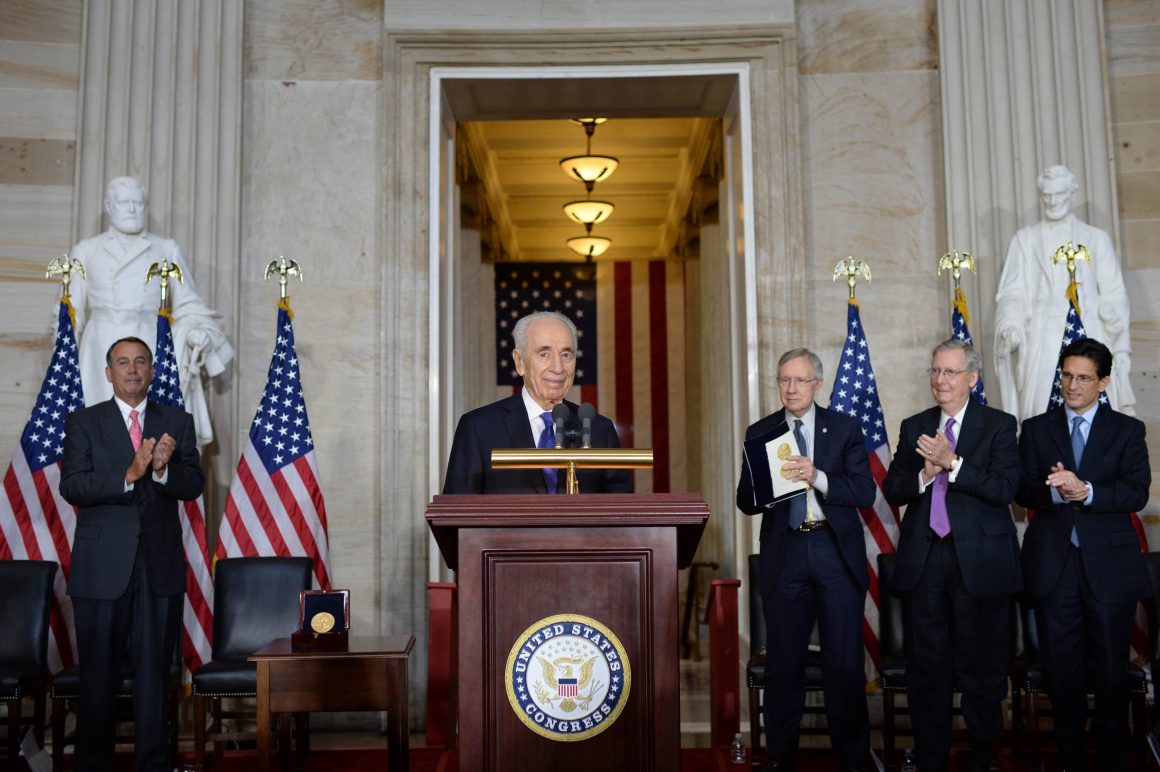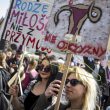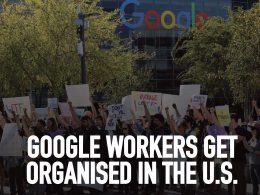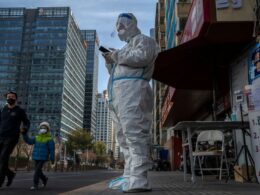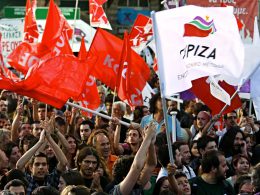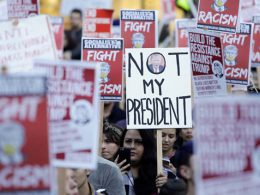Article by members of Socialist Struggle Movement, the sister organisation of the Socialist Party in Israel/Palestine, on the death of Shimon Peres. Peres has been eulogised in by political leaders and in the establishment media as a “peace maker”, here his real record is laid bare.
With Israeli Prime Minister Benjamin Netanyahu’s government facing increasing international isolation, representatives from 70 countries and international organizations came to participate at the funeral of the former president Shimon Peres.
The funeral became “an international conference, in which all the participants, perhaps except the representatives of the Israeli government, united behind [Peres’s] main legacy in the last 25 years – Oslo accords and the two-state solution”, as pointed out by the political commentator of Haaretz newspaper, Barak Ravid. US president Obama remarked during his tribute at the Herzl mountain cemetery, that Peres once said to him that “the Jewish people weren’t born to rule another people”.
Governments around the world, and also parts of the Israeli establishment saw in Peres a kind of a restraining influence on the settler, nationalist policy of current Prime Minister Benjamin Netanyahu, that is both provocative and arrogant and which they regard as another threat to stability in the region.
Aside from US president Obama, Bill Clinton, French President Hollande, the president of the EU, and general secretary of NATO, the funeral was attended also by representatives of governments of Jordan, Egypt, Turkey, Oman, Morocco and Bahrain, and the president of the Palestinian Authority, Mahmoud Abbas. The fact that the delegations from countries in the region did not include heads of states and that those who attended kept a relatively low profile indicates they are aware “of the extent of domestic and regional anger over Israeli policies in general, and those of Peres in particular”, as commented Al-Jazeera journalist, Sharif Nashashibi. The participation of Abbas was received with contempt by many among the Palestinians in the occupied territories. At Birzeit University, the student organization of Abbas’s party, Fatah, even called on him to resign.
The real record of Peres, the alleged “dove” Nobel Peace Prize winner, stands in direct contradiction to the advancement of peace in the region. According to Haaretz journalist, Gideon Levy, “this man had done almost nothing to bring an end to the occupation… he was the ‘beautiful face’ of Israel abroad – but behind this face, unfortunately, was hidden not a small amount of fake”.
Peres defended both inside Israel and abroad, every military attack and war that Israel conducted. Furthermore, Peres was party to historical attacks on the working conditions and living standards of the working class in Israel.
The ‘Joint List’ was the only one among the Knesset (Israel’s parliament) factions that did not send representatives to the funeral. The representatives of the parties that participate in the Joint List suffered yet another round of incitement for, justly, refusing to collaborate with a political show aimed to nourish a myth that actually hides Peres’s decades of policies that extracted a heavy price from the workers and poor.
Imperialist war and nuclear armament
Peres served as member of the Knesset for almost half a century. He took part in 12 governments, was prime minister for two short periods — as part of a rotation agreement with Yitzhak Shamir (from 1984-1986) and for half a year after the assassination of the former prime minister Rabin. He played a central role, for generations, in shaping the capitalist state of Israel, from his time in Mapai (‘Workers’ Party of the Land of Israel’, a Zionist ‘centre-left’ political party, and the dominant force in Israeli politics until its merger into the Israeli Labor Party in 1968) until his term as president from 2007-2014. He assisted, in effect, Benjamin Netanyahu’s rule, by working to soften international pressures arising from the continuation of the building of settlements and the siege of the Gaza strip.
Unlike other leading politicians of his generation, Peres did not enter politics as a military general and was never a soldier. But he led the cause of arming the Israeli state and making alliances with the big capitalist powers.
He was born in 1923 and emigrated to the country with his family, age 11, from a town in Poland (today part of Belarus). At the age of 18, Peres was elected to the post of secretary of the ‘HaNoar HaOved’ (‘The Working Youth’, a Zionist Labor youth organization) that was affiliated to Mapai. In 1947 he was recruited, on the eve of the armed movement to create Israel, to the headquarters of the Hagana militia, where he was responsible for purchasing of arms from foreign powers.
After the war, during which the catastrophes of the Palestinian Nakba occurred, France was the main weapons supplier to Israel. Peres was made general manager of the Ministry of Defence. In this position, he focused on arming the Israeli Defence Force (IDF), expanding the Israeli weapons industry (the establishment of Israel Aerospace Industries and Rafael), and nourishing a strategic relationship with France. Peres met with representatives of this imperialist power and acted to convince them that the new State of Israel would be ready to act as vanguard in the war against the continuing anti-colonial uprising in the region.
This is the background to the 1956 Sinai war that was unleashed by Israel, Britain and France against Egypt, as a response to the nationalization of the Suez Canal by Egypt’s leader, Nasser. The planning of the occupation of the peninsula by the IDF took two years and included a series of secret meetings between Peres and the minister of defence of France, Marie-Pierre Kœnig.
French imperialism repaid Israel with a secret agreement to build a nuclear reactor at Dimona, which was signed in October 1957. Peres is considered the “father” of the agreement, which established the Israeli military nuclear programme. Thirty years ago, after receiving a direct order from Peres, when he was Prime Minister, Mossad agents kidnapped from abroad the nuclear whistle-blower Mordechai Vanunu.
Throughout the years, Peres used the nuclear programme to make new international alliances, including with the apartheid regime in South Africa.
“From Dimona to Oslo”
“Once I was asked how I want to describe my biography”, told Peres, “I said: from Dimona to Oslo”. According to Peres, “Dimona paved the way to Oslo”. By this, he meant that the nuclear arsenal of Israel aborted the idea that Israel can be defeated militarily and that this convinced the PLO it should negotiate with Israel and reach a compromise. In reality, the nuclear weapons did not promote peace in the region. They did not prevent wars over decades and only bolstered the arrogance of the Israeli ruling class and its refusal to give significant concessions.
For years, following the 1967 occupation, Peres enthusiastically promoted the “Jordanian Option”: putting the areas of the West Bank populated by Palestinians under Jordanian sovereignty, while annexing the settlements, the Jordan valley and East Jerusalem to Israel – a program that would be received today with sympathy in the ranks of the ‘Jewish Home’ (religious-zionist right wing populist party). In 1976, Peres initiated elections to the local Palestinian municipalities in the West Bank territories, with the expectation that it would result in the election of a leadership that would agree to collaborate with his plan. But this initiative backfired when representatives that were identified with the PLO emerged as the big winners of the elections. In 1987, as foreign minister in Shamir’s second government, Peres signed a document of understanding with King Hussein of Jordan, the ‘London accord’. But Shamir, determined to promote the programme of “Greater Israel”, rejected it.
At the end of that year, the first Intifada erupted: the heroic mass uprising of the Palestinians in the 1967 territories against the occupation and for national liberation. The fear of the Jordanian monarchy that the uprising could spread forced King Hussein to declare that Jordan would back-off from all of its claims on the West Bank’s territories. The Israeli coalition government of Likud and Labor acted to brutally suppress, by military means, the uprising and denounced the idea of an international conference and Israeli-Palestinian negotiations. But under heavy American pressure after the first Gulf War in 1991, Shamir’s last government was forced to take part in such a meeting, the Madrid conference.
The Israeli ruling class came to realize more and more that the Intifada changed the relationship of forces on the ground and made direct occupation too costly – military, politically and economically. The ruling class strived to rearrange the control of the territories. After the 1992 elections, Peres, this time as foreign minister in Rabin’s government, and his deputy, Yossi Beilin, made secret contacts with representatives of the PLO, links that were outlawed by Peres’s own government in 1986!
Peres explained in the Knesset after the signing of the first accord: “This agreement is about Gaza and Jericho. Regarding what’s next, I oppose a separate Palestinian state”. As an echo of the Jordanian Option, which was off the agenda, his precondition about the recognition of a future Palestinian state was that it should be subordinated to Jordan, as part of a “Jordanian-Palestinian confederation”.
Despite the huge hopes that arose in the beginning among the masses from both sides of the conflict, the Oslo accords were, in reality, a smoke screen for the expansion of settlements and a sophisticated way of rebuffing the possibility of the establishment of genuinely independent Palestinian state.
The expansion of the settlements during the Oslo period was a logical continuation of the policies of the first Peres-Rabin government, 1974-1977. Then also, Peres and Rabin (despite tactical differences between them) saw in the building of the settlements a whip against the Palestinian masses and a tool to advance the crippling annexation of the West Bank’s territories.
“Grapes of Wrath”
The few months during which Peres served as prime minister of a transitional government after Rabin’s assassination, was a time of escalation of the conflict with the Palestinians. It was marked by the IDF siege policies of the territories and by terror attacks inside Israel, after the assassination of Hamas militant, Yahya Ayyash. A war on Lebanon – code-named “Grapes of Wrath” – saw out that Israeli government.
It appears that it was no accident that operation “Grapes of wrath” took place a few weeks before elections to the Knesset and to the office of prime minister. Katyusha rocket attacks by Hezbollah on northern Israel were used as an excuse to bomb Shia villages in south Lebanon, intentionally creating a wave of refugees (‘exerting pressure’). Weeks into the attacks, the IDF shelled the village of Qana and took the lives of 106 Lebanese refugees inhabiting a UN compound, half of them children. Peres claimed it was a “bitter surprise” to the Israeli regime that hundreds were in the UN camp. The veteran Middle East journalist, Robert Fisk, who was near the massacre, is clear about Peres’ excuse: “It was a lie”. A UN investigation concluded that it was “unlikely” that the shelling of the compound was the result of technical mistakes.
It was Peres, when prime minister in 1985, who pushed for the establishment of the “South Lebanon Security Belt” that continued the Israeli occupation of Lebanon, with catastrophic consequences for another 15 years.
An architect of neo-liberalism
The capitalist ruling class in Israel cherishes Peres for his contribution to the rise of neo-liberal policies. The leading economic commentator for the ‘The Marker’, Meirav Arlosoroff, for example, wrote: “The modern Israeli economy was born on July 1, 1985. That was the day the cabinet adopted a broad program aimed at ending hyperinflation and saving Israel’s rapidly disappearing foreign currency reserves.
“But it was also the day when the socialist economy of the 1950s and ‘60s gave way to capitalism. Shimon Peres, who was prime minister at the time, was indisputably the man who did it”.
At that time, Peres was not only prime minister, representing the Israeli Labor Party, but also one of the vice presidents of the Socialist International (SI), the global grouping of social democratic parties. He was first elected to that position in the SI in 1978 (which he held almost consecutively until 1999, when he was elected for another four years to be the SI’s honorary president). The social-democratic parties that were part of the SI had already begun to embrace the guiding lines of the new economic policy that was led by Margaret Thatcher in Britain and Ronald Reagan in the US.
Israel was never a ‘socialist state’. Aside from the fact that the state was based, from its beginning, on oppression and colonial expropriation of the Palestinians, in the 1950s and 1960s it was primarily based on a capitalist economy (even though the state had a more central role in the economy, and it had, selective and discriminating, welfare state features).
The role of the state, along with “socialist” rhetoric, was necessary for the Zionist labor movement in the first decades of existence, to mobilize decisive mass support among the Jewish workers and also to cope with the influx of mass immigration. The development of basic infrastructure and the massive investment in the building of military power were a marked feature of this period. The Zionist labor organizations, including Mapai-Labor and the Histadrut (Israeli trade union ‘federation’), from the start, were not built as class struggle organizations of workers. Their main aim was to achieve the goals of the national Zionist movement. For this reason, they were responsible not only for sowing destructive national segregation among the working class even before 1948, and for brutal attacks on Arab-Palestinian workers and poor peasants, but also for the promotion of the long term interests of capitalism.
The move towards the strengthening of the market economy and weakening of organized labor started in a clear form already before Peres became prime minister. In the early years of the state, the rule of the Labor party started the expansion of the private sector, along with the repression of workers’ struggles. On the back of the rage of Mizrahi Jewish (Jews originated from Arab and Muslim countries) workers and poor over racist discrimination they suffered by the Labor rule, the rival right-wing capitalist party, the Likud, managed to come to power in the ‘Turnover’ of 1977. Likud’s first government started to implement “liberalization” of the market (the “Economic Turnover”), but it had to combine also populist elements to try to fulfill the expectations of the Mizrahi working class layers which enabled its coming to power. However, Peres, as the head of the Labor party, serving as a prime minister for a limited time agreed ahead as part of the rotation agreement, was more liberated from those pressures. The Thatcherite “economic stabilization programme” he initiated was an important turning point in the speed-up of the economic counter-revolution of neo-liberalism.
Peres’s legacy
Peres served as a minister in both the Barak and Sharon governments, and was, among other things, co-responsible for the murderous repression of citizens during the October 2000 protests. During his time as minister for the “development of the Negev and Galilee”, Peres advanced plans for the “Judaization” of these areas. In 1976, as minister of defence, Peres played a central part in the decision to send the army and the police to brutally suppress the land day uprising, which erupted in response to massive confiscation of Palestinian land in Israel.
In January 2005, Peres lead his party back from ‘opposition’ into Sharon’s second government, to assist in passing the ‘Disengagement Plan’. Within months, he teamed up with Sharon’s newly launched (and now defunct) Kadima party. The IDF pull-out from Gaza was used to turn Gaza into the ‘largest prison in the world’ and to bolster the settlements in the West Bank and East Jerusalem. It paved the way to the terrible rounds of wars of recent years.
Peres never promoted or pointed towards a practical way to end the Israeli-Palestinian conflict. The policies that he conducted in this regard, including during the Oslo years, intensified the conflict significantly. His economic policies contributed to the creation of unprecedented inequality and poverty.
In contrast to Peres’ vision, a “new Middle East” of peace and prosperity is utopian on a capitalist basis, as shown by the horrors that continue in the region. Alliances between capitalist Israel and the rest of the regimes in the Middle East will not end inequality, poverty, oppression and the conflicts in the region. In the same way, a programme that, in reality, denies the rights of the Palestinians is not the key for peace but for a continuation of a bloody conflict. And neo-liberal attacks are not steps towards welfare and social justice.
Peres’s life work was the strengthening of rule of big capital, of militarism, of discrimination and national oppression. The struggle to build a strong socialist left is the way to ensure that a ‘new’ Middle East, based on equality, peace and justice for all its peoples, is truly realized.





